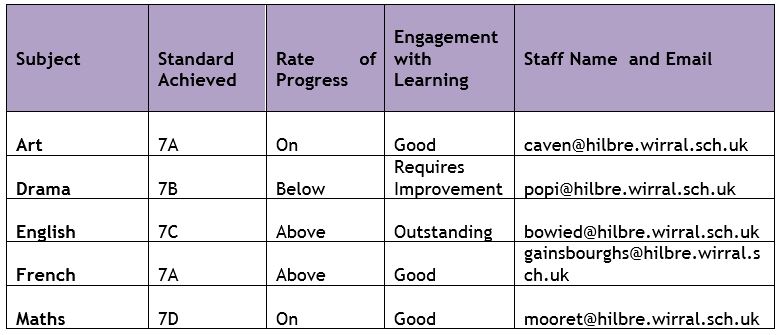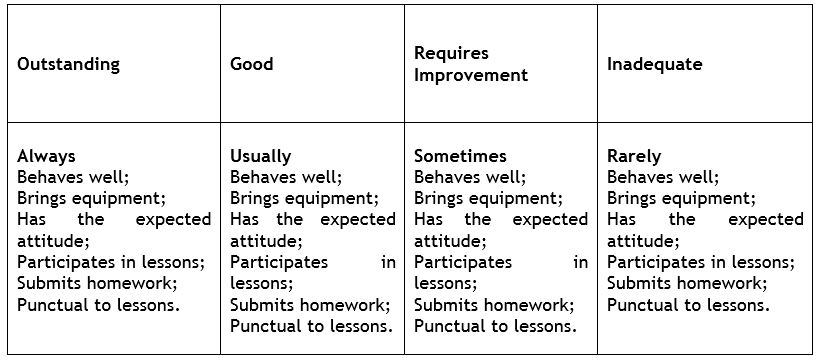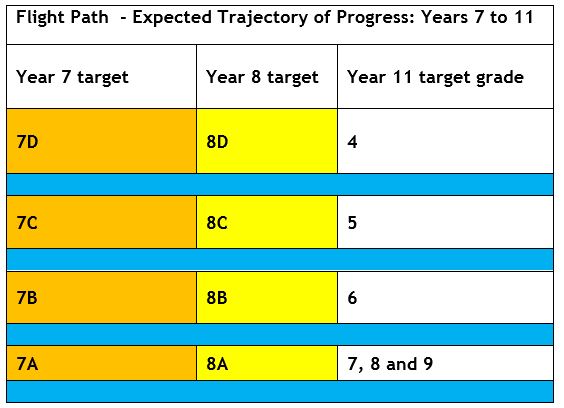Assessment
Teacher Assessed Grades 2021:
Summer 2021 Examinations:
At the end of February the government announced arrangements for students to achieve their grades this summer. Students following all courses to be certified this academic year, will be given grades assessed by the work they have and will complete over the forthcoming months.
Each subject has now determined the assessed work they will be using to award students with a Teacher Assessed Grade. A summary of this GCSE and GCE work is now available and is provided for you in the PDF booklets below.
GCSE: /_site/data/files/documents/6DB8C719AD9526102132703E2847DDFC.pdf
GCE: /_site/data/files/documents/D6F03F303694D94DAA5A0B918120F235.pdf
Further information:
· We will be using a broad range of evidence, now being referred to as a ‘basket of evidence’, to determine the grades before we submit these to the exam boards in June.
· At school we will be assessing our students’ performance, only on what content has been delivered by their teachers.
· Teachers will determine the grades as late in the academic year as is practicable and this will not be confined to a defined window, to enable teaching to continue for as long as possible.
· Teachers will take a holistic approach when determining final grades and will over the next few months, have a dialogue with students about their current working grades and provide the opportunity to do gap assessments. They will NOT however, discuss and share the final grade they will be submitting.
The respective exam boards all have useful information and video updates for both students and parents and carers:
OCR: https://www.ocr.org.uk/everything-you-need-to-know-for-summer-2021/students/#summer-2021
AQA: https://www.aqa.org.uk/news/coronavirus-and-exams
Pearson/Edexcel Support for students, parents and carers. There is also a link on their webpage to sign up to the parents and carers newsletter.
Rock School/RSL: Examination Update: COVID-19 - RSL Awards https://www.rslawards.com/examination-update-covid-19/
WJEC/EDUQAS : https://www.wjec.co.uk/home/assessments-2021-get-the-support-you-need/summer-2021-changes-to-assessments/
Progress Reports:
These are summative and evaluate a student’s progress over time; specifically the duration of the academic year at each assessment point. In addition to outcomes from summative tests, other appropriate work, as recognised by the teacher and Progress Leader may be included in recognition of progress over time.
- The Progress Report will draw from all formally administered tests, marked against agreed criteria. Tests will not always be written. For example, there may be a spoken language test in MFL or a practical assessment in Food Technology, etc.
- It is expected that tests have sufficient content to mirror the body of work studied. Consequently, within a full term, if a practical is tested, the expectation is that a test of written understanding of a topic will also be conducted.
- Testing at Key Stage 4 must enable and expect students to access expected GCSE content and outcomes.
- Testing at Key Stage 3 must test a body of work that enables, expects and is conducive to students completing appropriate study for them to make good progress in the same subject at GCSE. (This includes option subjects.)
- Tests must be devised to include the areas of study that will inform the grade reported in the Progress Report. It is possible this may necessitate more than one test.
- For Key Stage 4 reporting, it is imperative that the mark scheme replicates expectation and standards for GCSE assessment and is marked on a scale of grade W (working towards GCSE standard), GCSE grade 1, GCSE grade 2, GCSE grade 3, GCSE grade 4, GCSE grade 5, GCSE grade 6, GCSE grade 7, GCSE grade 8, GCSE grade 9.
- For Key Stage 3 reporting, it is imperative that students are assessed against the ‘Subject Skills, Knowledge and Mastery’ maps and graded either A,B,C,D or W for ‘Working Towards’.
- It is critical that students are judged on their ability to demonstrate they fulfil mark scheme criteria.
- Tests must challenge students of all abilities with a fundamental expectation that hard work is required to make the desired progress.
- It is important that students and parents/carers are clearly informed as to what constitutes the subject grade that is reported in the Progress Report.
The Key Stage 3 Report:
Key Stage 3 Progress Reports report information, as seen in the example below.
Standard Achieved is judged by testing the Subject Knowledge and Skills required to master a particular stage. Depending upon the knowledge and skills realised within their assessment, a student is judged to be making the Rate of Progress that is either:
Above Track to meet the expected standard; On Track to meet the expected standard; Below Track to meet the expected standard
The Key Stage 4 Report:
Key Stage 4 Progress Reports report information, as seen in the example below.
Progress Reports are designed to clearly show current progress in each subject. Each Progress Report provides the Current Grade, End-of-Year Target Grade, End-of-Year 11 Target Grade, Predicted GCSE Grade, Rate of Progress evaluation, Engagement with Learning evaluation and contact details.
For students in all years, Engagement with Learning in each subject is evaluated. This is important as it shares our perception of the effort and commitment a student makes in the subject. It is expected that students consistently work to their best ability in all lessons and at home; we expect support from parents/carers in ensuring children work to their best ability and we encourage an open dialogue between teachers and parents/carers to ensure this is the case. Criteria for Engagement for Learning is shown below:
There is one written report per annum. Comments in the written report are written for the parent/carer and are diagnostic in content. Comments provide clear information about the student’s performance in class, in what areas of study improvements can be made and how.
Predicted GCSE Grade:
This grade is determined by the subject teacher, using a combination of the student’s target grade and current rate of progress made.
Frequency of Testing and Reporting:
- Students have three monitoring points per academic year.
- Mock examinations scheduled for Year 11 students occur in the Spring Term, allowing for sufficient time for the curriculum to have been completed and tested effectively.
- An Exams Week is scheduled in the Summer Term, in which all students in Years 7 to 10 formally sit the end-of-year summative tests.
- All students in Years 7 to 10 receive 3 Progress Reports per annum
- Students in Year 11 receive 2 Progress Reports plus a Mock Results Report
- Students in Year 12 receive 3 Progress Reports
- Students in Year 13 receive 2 Progress Reports
- One Progress Report per annum must contain detailed written information, written by each subject teacher about the student's progress in each specific subject.
We have three progress monitoring points, each falling at the end of a term. Throughout the term and leading up to the time of each monitoring, teachers assess every student and provide them with ‘formative’ guidance, so they can make further improvement. Towards the end of a term and close to the release of monitoring, relevant ‘summative’ assessment, enables teachers to award the student with a clearly informed grade for each subject, drawing on evidence gathered throughout the term and particularly from the final assessment. This appears in the Progress Report as Current Grade.
Further Information About Assessment, Recording and Reporting
Accurate, rigorous and challenging assessment enables students to make rapid progress and provides robust information about progress made. All staff with responsibility for teaching students are accountable for the progress of those students and the accuracy of the assessment data provided through the academic year. Regular, effective assessment is key in ensuring students’ success and the accuracy of predicted outcomes across the curriculum and at every key stage. It is important that students receive a diet of both formative and summative assessment, according to purpose. It is critically important that students are guided to improvement through formative feedback, so they are clearly informed and able to improve through understanding how improvement can be made, why and what improvement will look like. Periodically summative assessments will determine student progress at determined terminal points of learning; for example end of unit or end of a designated time span, such as a term.
It is essential to always consider the purpose of assessment and assessment data. Assessment takes two forms; formative and summative.
Formative Assessment: Informs students of the steps they need to take to improve their work. It includes student self-assessment and target setting, since it actively involves students in evaluating their own performance and the steps they should take to ensure progression.
Summative Assessment: Determines how well students have understood a topic or course of work taught over a period of time. It gives parents/carers an understanding of achievement made, progress and outcomes for students over a period of time; it enables teachers to evaluate their delivery of a topic and the impact they have made.
Summative tests should be seen as the end-piece to a topic studied. As such, formative assessment practices should be applied to work produced before final summative tests, so that students are aware of how and what to improve before the final test assessment.
Many examinations are terminal and do not have a coursework/practical element; students must be prepared for this. The rigor of preparing for tests and the expectation placed on students to pass tests must be embedded in school; a key responsibility of the teacher must be to guide the student through the preparation process using appropriate feedback and formative assessment.
- At KS4 and in Year 9, students are assessed using GCSE criteria
- In Years 7 and 8, students are assessed using the school’s own KS3 Assessment: A to D Stage: Mastery, Curriculum, Assessment Maps.
- Students receive a diet of both formative and summative assessment, according to purpose.
- Students are guided to improvement through formative feedback, so they are clearly informed and able to improve through understanding how improvement can be made, why and what improvement will look like.
- Summative assessments determine student progress at determined terminal points of learning; for example end of unit or end of a designated time span, such as a term.
- Summative tests should be seen as the end-piece to a topic studied. As such, formative assessment practices should be applied to work produced before final summative tests, so that students are aware of how and what to improve before the final test assessment.
Key Stage 3 Assessment: A to D Stage: Mastery, Curriculum, Assessment
Mastery Curriculum – Assessment Procedures:
- The mastery curriculum, for students in Years 7 and 8 takes as its starting point, the necessary skills and knowledge required by students, so they can successfully access and utilise the requisite knowledge and skills for their GCSE studies.
- To achieve this, subjects have analysed content in GCSE specifications and determined how skills and knowledge must be built up over the five years from Year 7 to Year 11.
Hilbre High School assessment in Years 7 and 8 is based on:
- ‘Mastery’ of content through interleaved learning and ‘mastery’ of skills needed to access the requisite content
- Progression through stages by students understanding the required content, mastering the skills taught and consistently applying them.
Assessment at KS3:
- To determine whether a stage has been achieved, subjects have ‘Subject Skills, Knowledge and Mastery’ maps (see the PDF below), outlining what needs to be mastered to achieve mastery of a stage in a particular subject.
- Regular assessments determine whether students have mastered content.
- Where students do not achieve mastery of content within a stage, purposeful intervention is required. Where students consistently demonstrate knowledge and skills beyond the stage upon which they are placed, they must be given intervention to further extend their learning.
- Students must prove that they have understood and can apply what has been taught each term. They are tested using questions covering all of the topics, knowledge and skills taught so far. Students are then assessed to determine whether they are above, on or below progress, assessing their current attainment against their expected attainment, using their personal ‘flight path’ for each individual subject.
- Below is the ‘flight path’ used for students to determine their appropriate stages to be achieved each year and their expected Year 11 target grade, based on their ‘flight path’. Progress along a ‘flight path’ needs to be sustained, if students are to reach their predictions in Year 11. Students are placed on the appropriate flightpath as determined by their end-of-Year 11 targets, as detailed above.





